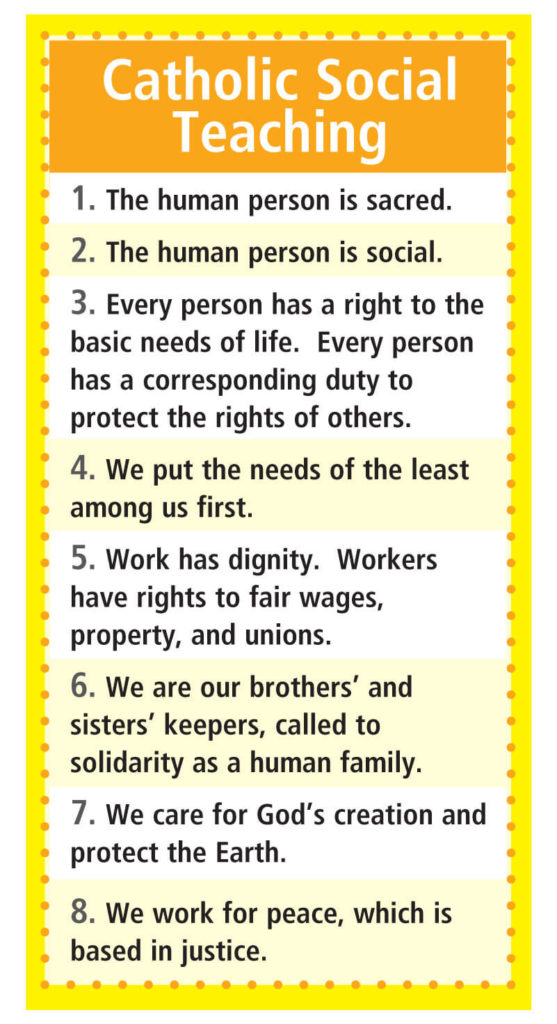
Catholic social teachings challenge us to transform the injustices in our global society, especially those that exclude the poor from their basic survival needs: food, clothing, shelter, education, health care, work, fair wages. The young people of today are the ones who will carry this work in the third millennium.
Technology and air travel make us all citizens of the earth, more aware than earlier generations that we live interdependently in a delicate ecosphere on this planet. We wear cotton T-shirts made in Peru, jackets made in China, shoes from Malaysia. We eat fruit from Israel or Mexico.

We are not lone, isolated beings, each functioning in our own bubble. The social teaching of our Church challenges us to practice solidarity, which means loving our neighbors throughout the world, being our brothers’ and sisters’ keepers.
Practicing solidarity means crossing all kinds of borders, visible and invisible. These include national boundaries as well as racial, ethnic, and economic differences. All people are equal in dignity. The human race is a single species with the potential for unity.
Catholic social teaching rests on two important beliefs. First, the human person is sacred, made in the image of God. Second, the human person is social, made for relationships. God has reached out to humans not just as individuals but by making us into a people, by making a covenant with us (Lumen Gentium, #9).
We thrive only in relationships with others. It takes a family and a community to raise children. It takes friends to find one’s identity. It takes participating with others to build a human community. In fact, the Church teaches us that Catholics have an obligation to participate in society and to work for the common good of all.
Because the human person is sacred, every human being has both rights and responsibilities. Each of us has the very basic rights to life and to food, clothing, shelter, health care, education, work. At the same time each of us has a duty to protect others’ rights.
Human beings have a right to work and fair wages, to own property, and organize unions. They have an obligation to work productively. Catholics understand work as participation in God’s creation.
Like the scriptures, Catholic social teaching tells us that how we treat the poorest and weakest among us is the test of how good our society is (Catechism of the Catholic Church, #2419-2449). It tells us to put the needs of the least among us first. Sometimes this is called a preferential option for the poor. This teaching measures all policies and programs by how they affect the least and most vulnerable among us.
